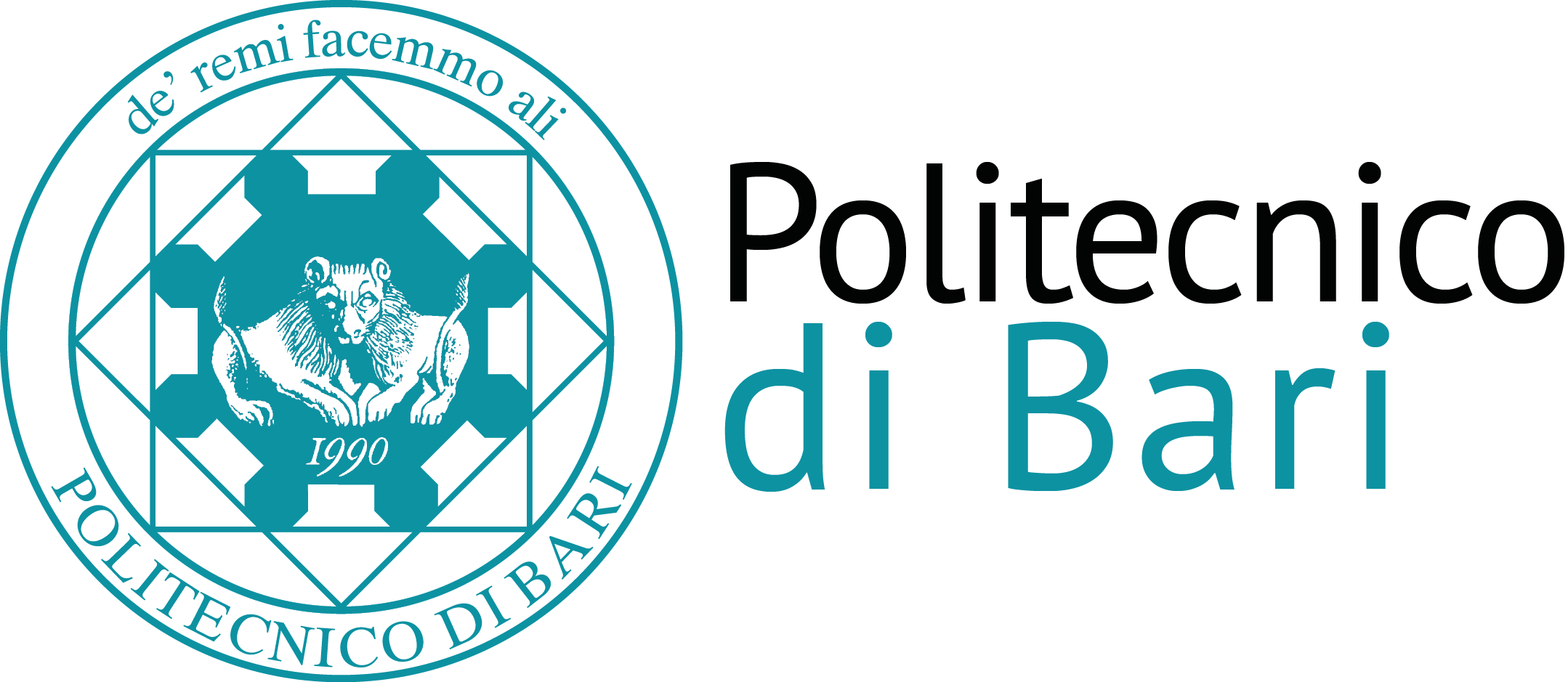
Information
+39 080 596 3843
ti.ab1769993019ilop.1769993019dhp@i1769993019nahgo1769993019nirak1769993019sa.s1769993019
Curriculum Vitae (english)
Publications
Saba Askari Noghani
PhD student
Saba Askari Noghani is a Ph.D. candidate in Autonomous Systems at Politecnico di Bari, Italy. She has been awarded a DAUSY-funded scholarship to work on modeling, optimization, and artificial intelligence techniques under the supervision of Prof. Engr. Mariagrazia Dotoli. She is a former research scholar at the Technical University of Berlin, Germany, where she deepened her understanding of learning-based methods. She obtained her M.Sc. degree in Control Engineering from Ferdowsi University of Mashhad, one of the top universities in Iran, where she graduated with honors as the first-ranked student. Also, she holds a B.Sc. degree in Medical Engineering from Mashhad Azad University.
Publications
2025
- Noghani, S. A., Scarabaggio, P., Carli, R. & Dotoli, M. (2025) Predictive energy scheduling of smart parking infrastructure with solar-powered electric vehicles. IN IFAC Journal of Systems and Control, 33.. doi:10.1016/j.ifacsc.2025.100322
[BibTeX] [Abstract] [Download PDF]This paper presents a novel model predictive control framework for managing energy flow in smart parking infrastructures with renewable energy facilities, electric vehicles, and solar-powered electric vehicles. The proposed control framework minimizes the energy costs for the parking lot operators, ensuring the user-defined charge levels for vehicles at departure, and protecting the charging infrastructure during operation. Field validation on Lonsdale Street, Melbourne (Australia)—using real data on vehicle behavior, solar irradiance, and energy prices—shows significant grid load reduction even with partial solar production. Compared to a rule-based strategy, the MPC approach reduces operational costs by 15.32% and energy demand by 6.12%. Lastly, we show that the proposed framework is robust under forecast uncertainty, supporting its practical deployment in dynamic real-world environments. © 2025 Elsevier B.V., All rights reserved.
@ARTICLE{Noghani2025, author = {Noghani, Saba Askari and Scarabaggio, Paolo and Carli, Raffaele and Dotoli, Mariagrazia}, title = {Predictive energy scheduling of smart parking infrastructure with solar-powered electric vehicles}, year = {2025}, journal = {IFAC Journal of Systems and Control}, volume = {33}, pages = {}, doi = {10.1016/j.ifacsc.2025.100322}, url = {https://www.scopus.com/inward/record.uri?eid=2-s2.0-105011842728&doi=10.1016%2Fj.ifacsc.2025.100322&partnerID=40&md5=73fde39989d84e16b893cdf618384165}, affiliations = {Politecnico di Bari, Department of Electronic and Information Engineering, Bari, Italy}, abstract = {This paper presents a novel model predictive control framework for managing energy flow in smart parking infrastructures with renewable energy facilities, electric vehicles, and solar-powered electric vehicles. The proposed control framework minimizes the energy costs for the parking lot operators, ensuring the user-defined charge levels for vehicles at departure, and protecting the charging infrastructure during operation. Field validation on Lonsdale Street, Melbourne (Australia)—using real data on vehicle behavior, solar irradiance, and energy prices—shows significant grid load reduction even with partial solar production. Compared to a rule-based strategy, the MPC approach reduces operational costs by 15.32% and energy demand by 6.12%. Lastly, we show that the proposed framework is robust under forecast uncertainty, supporting its practical deployment in dynamic real-world environments. © 2025 Elsevier B.V., All rights reserved.}, author_keywords = {Energy management; Model predictive control; Renewable energy; Smart parking lots; Solar-powered vehicles}, correspondence_address = {P. Scarabaggio; Department of Electrical and Information Engineering, Polytechnic of Bari, Bari, via Re David 200, 70126, Italy; email: ti.ab1769993019ilop@1769993019oigga1769993019barac1769993019s.olo1769993019ap1769993019}, publisher = {Elsevier Ltd}, issn = {24686018}, language = {English}, abbrev_source_title = {IFAC J. Syst. Control.}, type = {Article}, publication_stage = {Final}, source = {Scopus}, note = {Cited by: 0} }
2024
- Noghani, S. A., Scarabaggio, P., Carli, R. & Dotoli, M. (2024) Noncooperative Control of Energy Communities through Learning-based Response Dynamics IN IEEE International Conference on Automation Science and Engineering.IEEE Computer Society, 2732-2737. doi:10.1109/CASE59546.2024.10711353
[BibTeX] [Abstract] [Download PDF]With the growing availability of data, learning-based distributed energy management is emerging as a viable and efficient alternative to traditional model-based schemes. In this context, we propose a novel game-theoretic learning-based method for the distributed control of energy communities. In particular, we consider a community that includes several prosumers equipped with a renewable energy source and an energy storage system. The scheduling of energy activities of all prosumers is formulated as a noncooperative game. Nevertheless, unlike the state-of-the-art, where an optimization problem is typically defined to model the behavior of each prosumer, we approximate each prosumer response strategy using a neural network. We propose a distributed algorithm based on the well-known Banach-Picard iteration to efficiently seek for an equilibrium of the game. Lastly, the convergence and effectiveness of the proposed approach are validated through numerical simulations under different realistic scenarios. © 2024 Elsevier B.V., All rights reserved.
@CONFERENCE{Noghani20242732, author = {Noghani, Saba Askari and Scarabaggio, Paolo and Carli, Raffaele and Dotoli, Mariagrazia}, title = {Noncooperative Control of Energy Communities through Learning-based Response Dynamics}, year = {2024}, journal = {IEEE International Conference on Automation Science and Engineering}, pages = {2732 - 2737}, doi = {10.1109/CASE59546.2024.10711353}, url = {https://www.scopus.com/inward/record.uri?eid=2-s2.0-85208262627&doi=10.1109%2FCASE59546.2024.10711353&partnerID=40&md5=26ae76573822992f5f02afc789534774}, affiliations = {Politecnico di Bari, Department of Electronic and Information Engineering, Bari, Italy}, abstract = {With the growing availability of data, learning-based distributed energy management is emerging as a viable and efficient alternative to traditional model-based schemes. In this context, we propose a novel game-theoretic learning-based method for the distributed control of energy communities. In particular, we consider a community that includes several prosumers equipped with a renewable energy source and an energy storage system. The scheduling of energy activities of all prosumers is formulated as a noncooperative game. Nevertheless, unlike the state-of-the-art, where an optimization problem is typically defined to model the behavior of each prosumer, we approximate each prosumer response strategy using a neural network. We propose a distributed algorithm based on the well-known Banach-Picard iteration to efficiently seek for an equilibrium of the game. Lastly, the convergence and effectiveness of the proposed approach are validated through numerical simulations under different realistic scenarios. © 2024 Elsevier B.V., All rights reserved.}, author_keywords = {energy management; game theory; learning-based; optimization; Renewable energy}, keywords = {Federated learning; Control of energies; Distributed energies; Energy; Learning-based; Management IS; Model-based OPC; Optimisations; Prosumer; Renewable energies; Traditional models; Distributed energy}, correspondence_address = {S.A. Noghani; The Polytechnic of Bari, Department of Electrical and Information Engineering, Italy; email: ti.ab1769993019ilop.1769993019dhp@i1769993019nahgo1769993019nirak1769993019sa.s1769993019}, publisher = {IEEE Computer Society}, issn = {21618089; 21618070}, isbn = {9781665490429; 9781728103556; 9781509067800; 9781467381833; 9798350320695; 9781509024094; 9781479952830; 9781538635933; 9781479915156; 9781457717307}, language = {English}, abbrev_source_title = {IEEE Int. Conf. Autom. Sci. Eng.}, type = {Conference paper}, publication_stage = {Final}, source = {Scopus}, note = {Cited by: 0} } - Noghani, S. A., Scarabaggio, P., Carli, R. & Dotoli, M. (2024) Solar-Powered Electric Vehicles into V2G-Capable Smart Parking Infrastructure for Enhanced Energy Efficiency Institute of Electrical and Electronics Engineers Inc., 575-580. doi:10.1109/CoDIT62066.2024.10708524
[BibTeX] [Abstract] [Download PDF]This paper introduces a novel framework for integrating solar-powered electric vehicles (SPEVs) into smart parking infrastructures, primarily focusing on optimizing energy utilization. The proposed framework relies on Model Predictive Control (MPC) to ensure efficient power flow management within smart parking infrastructures. Notably, the paper emphasizes the constraints necessary to ensure the safety and optimal performance of SPEVs and their charging requirements. Results show the effectiveness of the proposed approach, not only in preventing energy management issues but also in substantially reducing reliance on energy procurement from the grid. This integrated system contributes to a more sustainable and cost-effective energy ecosystem, representing a noteworthy advancement in electric mobility infrastructure. © 2024 Elsevier B.V., All rights reserved.
@CONFERENCE{Noghani2024575, author = {Noghani, Saba Askari and Scarabaggio, Paolo and Carli, Raffaele and Dotoli, Mariagrazia}, title = {Solar-Powered Electric Vehicles into V2G-Capable Smart Parking Infrastructure for Enhanced Energy Efficiency}, year = {2024}, pages = {575 - 580}, doi = {10.1109/CoDIT62066.2024.10708524}, url = {https://www.scopus.com/inward/record.uri?eid=2-s2.0-85208219403&doi=10.1109%2FCoDIT62066.2024.10708524&partnerID=40&md5=8af366d9ffe080215075c29862e9cfbc}, affiliations = {Politecnico di Bari, Department of Electronic and Information Engineering, Bari, Italy}, abstract = {This paper introduces a novel framework for integrating solar-powered electric vehicles (SPEVs) into smart parking infrastructures, primarily focusing on optimizing energy utilization. The proposed framework relies on Model Predictive Control (MPC) to ensure efficient power flow management within smart parking infrastructures. Notably, the paper emphasizes the constraints necessary to ensure the safety and optimal performance of SPEVs and their charging requirements. Results show the effectiveness of the proposed approach, not only in preventing energy management issues but also in substantially reducing reliance on energy procurement from the grid. This integrated system contributes to a more sustainable and cost-effective energy ecosystem, representing a noteworthy advancement in electric mobility infrastructure. © 2024 Elsevier B.V., All rights reserved.}, author_keywords = {energy management; model predictive control; renewable energy; solar-powered vehicles}, keywords = {Efficient power; Energy; Model-predictive control; Optimizing energy; Power flow management; Renewable energies; Safety performance; Smart parking; Solar-powered; Solar-powered vehicle}, correspondence_address = {S.A. Noghani; Polytechnic of Bari, Department of Electrical and Information Engineering, Italy; email: ti.ab1769993019ilop.1769993019dhp@i1769993019nahgo1769993019nirak1769993019sa.s1769993019}, publisher = {Institute of Electrical and Electronics Engineers Inc.}, isbn = {9798350373974}, language = {English}, abbrev_source_title = {Int. Conf. Control, Decis. Inf. Technol., CoDIT}, type = {Conference paper}, publication_stage = {Final}, source = {Scopus}, note = {Cited by: 2} }



